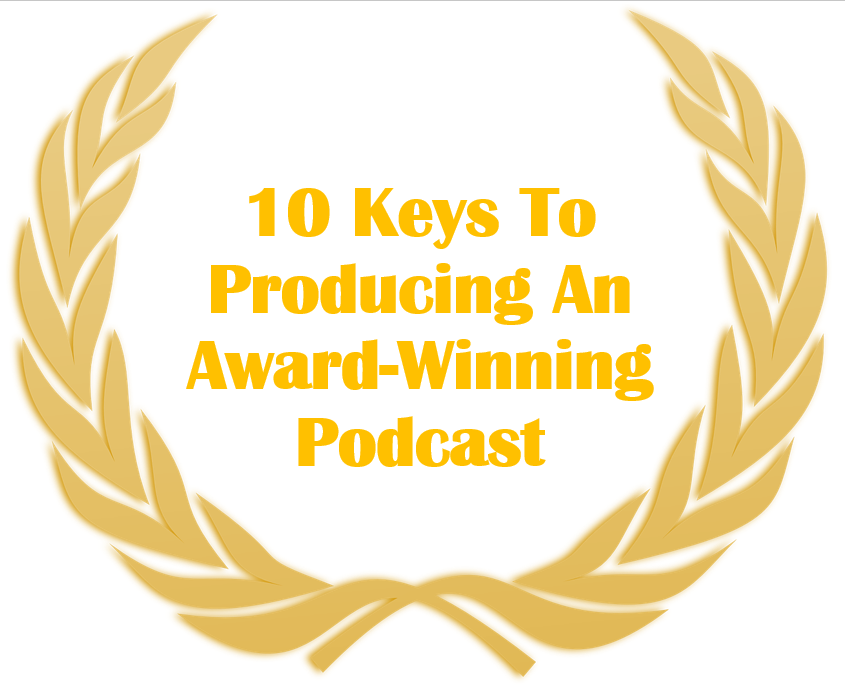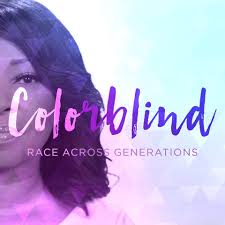
Last year, Jacobs Media embarked on an interesting initiative – how to inspire an interest in podcasting in a traditional media company. We were hired by Cox Media Group’s Tim Clarke and Bill Hendrich to light the fire in the company, across their entire media portfolio – TV, radio, and newspapers.
Since we’re radio guys, we created a contest – or a competition internal to CMG. Anyone in the company – from the CEO to the receptionists – could submit a podcast concept. Our mission was to sift through the many entries to choose what appeared to be the five that had the most potential to become “hits.”
Now many of us have done this before with music. In fact, those meetings take place every week at most radio stations that play current music. But the art of producing a great podcast – that’s a totally different thing.
The entries poured in. We got a lot of true crime pitches, as well as concepts that involved going behind the scenes to illuminate a big local story a news department already covered. At the end of the day, we chose five finalists, all very different from one another.
One of the best has become an up-and-running podcast called Colorblind, produced by WFTV/Orlando’s Vanessa Echols. The podcast recently  celebrated its one year anniversary, covering issues relating to race. And it’s a good one. Vanessa, by the way, will be joining us at Podcast Movement, also in Orlando this summer.
celebrated its one year anniversary, covering issues relating to race. And it’s a good one. Vanessa, by the way, will be joining us at Podcast Movement, also in Orlando this summer.
And the other podcast concept that jumped at us was one cleverly titled Mass. Marijuana, a show about the growing pains in the newly legal cannabis industry in the state of Massachusetts. The series is produced by Dalton Main, a digital content producer for Boston 25 News. And the truly wonderful news is that this podcast recently won a regional Edward R. Murrow Award.
Dalton is no stranger to podcasting. In fact, this is his second series to be so honored with a coveted Murrow. And here’s a key to Dalton’s success in the podcast space:
He was able to produce Mass. Marijuana by taking advantage of the material that his news department already had in their archives.
To gain insight about how a member of a traditional broadcasting outlet can successfully produce award-winning podcasts, Dalton recently talked to Seth Resler:

Seth Resler: What is the podcast’s focus?
Dalton Main: Mass. Marijuana is a podcast about the adult-use cannabis industry in Massachusetts. We launched this podcast when Massachusetts began its work regulating cannabis as a way to help people understand the culture, use, and legal restrictions of cannabis. It spans much more than just the ins and outs of the industry, covering the people and stories behind the plant.
SR: Where did the idea for Mass. Marijuana come from?
DM: Cannabis is a niche interest for many people, but its history, ubiquity, and growing appeal reveal incredible stories.

Whatever you call it – a plant, a drug, a medicine – cannabis has an incredible culture and history behind it. The idea was to create a podcast that educates people about so much more than just a drug. It’s about coming to terms with a troubled past, marginalized groups, and the creation of a whole new industry.
SR: So, how did you go about writing and producing Mass. Marijuana? Walk us through the architecture.
DM: This process was somewhat unique in that I worked with television reporters at Boston 25 News to create it. As cannabis became legal, we were covering stories constantly. My job was to take the interviews and stories created every day and weave them into a larger overarching narrative. I got to read between the lines and connect the dots of the daily news pieces. It was very fun.
SR: How did you promote the podcast?
DM: We used social media to push episodes out and cross-promoted from our television broadcast. Whenever a story about the Massachusetts cannabis industry would be broadcast, we would add an outro on the story in the newscast pushing viewers to download the podcast and listen.
(You can listen to a promo here)
SR: What was the biggest roadblock in producing Mass. Marijuana?
DM: The biggest challenge in creating this podcast was learning about something that I had never known much about. I started by reading The Pot Book by Julie Holland so I could start to understand the history, effects, and legacy of illegal cannabis. Then I began showing up to cannabis events in Massachusetts so I could meet people and make contacts to learn more about the stories we needed to tell.
SR: What did you learn about along the way to producing Mass. Marijuana?
DM: I learned a lot about cannabis, but also a lot about making connections in a “new” field. In actuality, cannabis has been around for a long time and there was a whole culture ready to take their love and enthusiasm to the mainstream. My experience getting to know them and hearing their stories was incredible. It’s something I cover a little bit in the final episode: “The Cannabis Community.”
SR: What advice would you give to other traditional broadcasters looking to start podcasting?
DM: Podcasts are so convenient and so comfortable for so many people. It’s basically just sitting down with a friend and letting them tell you a story. It’s a powerful platform that is booming right now. The history, hard work, and legacy of traditional broadcasters are elements just waiting to be extracted and compacted into long-form podcasts. Look to your archives and think about the ways you can leverage your brand for story telling in this format.

A big part of this “Cox Experiment” was to glean key takeaways to help other fledgling podcasters (as well as the broadcasters who employ them) figure out the key to creating, sustaining, and marketing a strong on-demand audio concept. Dalton provides great insights here, along with Seth Resler, who was in touch with him throughout the podcast’s production:
- Timeliness – Some of the most successful podcasts are like hit records or breaking news stories. They capture the mood or zeitgeist of an audience and tap into existing interest. Mass. Marijuana did just that in the New England region, as well as in other states that are on the legalization pathway.
- Relevance – We’ve seen this work time and time again, beyond Mass. Marijuana. WAMU (Washington, D.C.) launched Metropocalypse when the region’s mass transit system ran into problems. Other broadcasters have successfully seized the moment to produce podcasts that resonate with a key audience group or market.
- Research – This isn’t a podcast where people sit around and talk. Even though Dalton had plenty of archival material, he “went to school” on cannabis, a topic he admits knowing little about prior to producing Mass. Marijuana. Just as in writing a book, researching the topic is key.
- Rich detail – Dalton’s podcast gave him the ability to dig deeper into an issue that is often glossed over by the media. If you think radio is hyper-tight, the mini-“packages” TV produces often leave little time for color and richness of topic. This is where the podcast format excels – giving a topic the opportunity to breathe.
- Good writing – Mass. Marijuana became an award winner due in no small part to the writing expertise of Dalton’s reporting team. Great long-form audio content demands writing expertise.
- Storytelling – As Dalton explained, legalization led to great stories, and the ability to be able to play off different aspects of cannabis. It may be noteworthy the two best podcasts to emerge from the competition were produced by TV people – broadcasters who know how to tell a great story.
- Sustainability – Mass. Marijuana was six episodes long, proving that successful podcasts don’t have to go on in perpetuity. But in the case of this topic, the stories will continue to flow over time, as people, politicians, and others are impacted by the legalization of this drug. If Dalton and the Boston 25 team want to launch a second season of Mass. Marijuana, there will be no shortage of strong material.
- Strategic, savvy promotion – While not reinventing the wheel, Dalton applied logic to “market” the podcast, relying on social media, in-podcast marketing, and by tagging ongoing news stories about pot. As we’ve long opined, using the mega-voice of your station to get the word out about your podcast is key to exposing it to interested listeners.
- Go with what you know – Mass. Marijuana excelled because the Boston 25 News team knew their stuff, and constantly updated their knowledge as new stories developed. While Dalton had to go to school on the topic, much of the heavy lifting had already taken place, thanks to their reporting.
- Stay with it – Every podcaster fights against the early days, especially if initial growth isn’t explosive. “Podfade” often sets in when producers get discouraged by a slow start. With Mass. Marijuana, Dalton and his team didn’t bite off more than they could chew. Six episodes is a workable number, and now they have the option to continue the series or call it a day.
BONUS: Don’t reinvent the wheel – As Dalton has now pulled off twice, existing, archival material, interviews, and other “work parts” can be repurposed to create an on-demand audio series. Your news department or your attic may contain enough material to launch a solid podcast.
Check out the Mass. Marijuana podcast here:
Thanks to Dalton Main, Boston 25 News, Tim Clarke, and Bill Hendrich.
We will be talking all things podcasting at our 3-day “Broadcasters Meet Podcasters” track at Podcast Movement in Orlando. Info here.
- Memo To Radio: We Have Met The Enemy And It Is… - May 7, 2025
- The Guy In The Next Car - May 6, 2025
- 5 Lessons For Radio From The Apple Watch - May 5, 2025




Leave a Reply